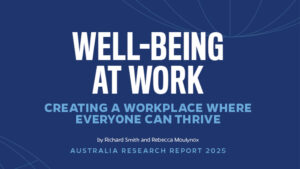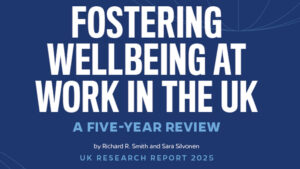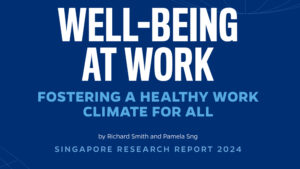Word count: 430
Non-monetary reward systems in online communities boost voluntary contributions but also increase the likelihood of counterproductive behaviors, particularly as users get close to earning key rewards.
Why it matters:
Leaders designing the future of work, digital platforms, and internal knowledge systems frequently use non-monetary rewards such as badges, leader boards, and peer-to-peer recognition to motivate engagement and knowledge sharing. This research shows such rewards can trigger both helpful and harmful behaviors:
- Reward systems drive measurable upticks in both productive and counterproductive actions near important milestones.
- Counterproductive acts (e.g., gaming, unhealthy competition) spike under high performance pressure.
- Sanctions for bad behavior—like temporary suspensions—can lead to long-term drops in contributions, threatening overall community vitality.
How we know:
The study analyzed over 1.7 million member-week observations from Stack Overflow (an online programming Q&A community), covering an 8-year window. It used proprietary data to track reward status, contributions, and suspensions for counterproductive behaviors (voting manipulation and gaming the system). Members nearing reward thresholds were compared to matched non-suspended peers; differences before and after sanctions were examined using logistic regression and fixed-effects models with robust controls.
What researchers found:
- Site members near a key reward threshold (milestone) had 26% higher odds of being suspended for counterproductive behavior.
- In the week before suspension, these same members increased their productive contributions by over 50% compared to equally high-achieving but never-suspended peers who were at the same place in the ranking at the same time.
- Productive and counterproductive behaviors often happened at the same time—members did not simply become unproductive when rule-bending increased.
- After being formally suspended, members’ future contribution rates dropped by 11% on average, suggesting that punitive sanctions may reduce future motivation.
What this means:
- For digital platform leaders: Nonmonetary rewards can drive both desired (more contributions) and undesired (more gaming or sabotage) behavior, particularly during high-stakes reward windows.
- For HR and knowledge managers: Reward pressure may inadvertently invite corner-cutting or disruptive behavior—even if total contributions rise—especially in volunteer or peer-driven environments. However, individuals showed signs of “policing” their own bad behavior. This shows that counterproductive behavior does not always crowd out positive contributions.
- For all organizations: Harsh sanctions like temporary bans can hurt long-term engagement; alternative interventions may maintain participation without driving away high contributors.
What to do:
- Audit your organization’s non-monetary reward systems for “milestone pressure points” and introduce positive nudges (recognition, supportive communications) near thresholds.
- Use transparent, fair, and proportionate responses to rule-bending—pair mild corrective action with coaching or community reinforcement rather than automatic suspensions where possible.
- Track both productive and counterproductive behaviors before and after sanctions to assess unintended side effects of enforcement.
- Pilot design tweaks that refocus contributors on community values near key milestones (e.g., highlight collaborative over competitive achievements).



